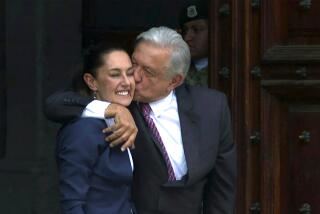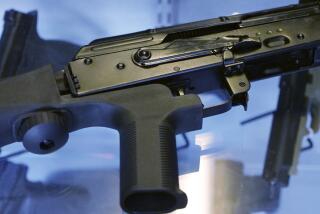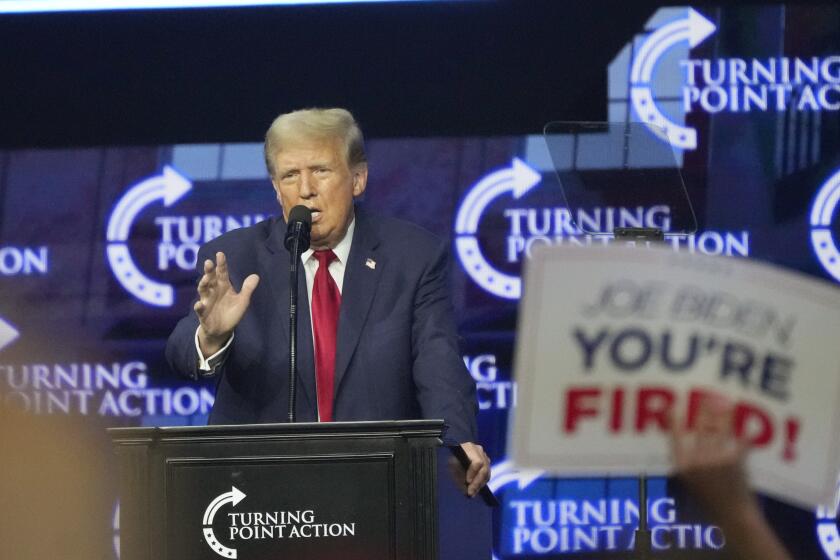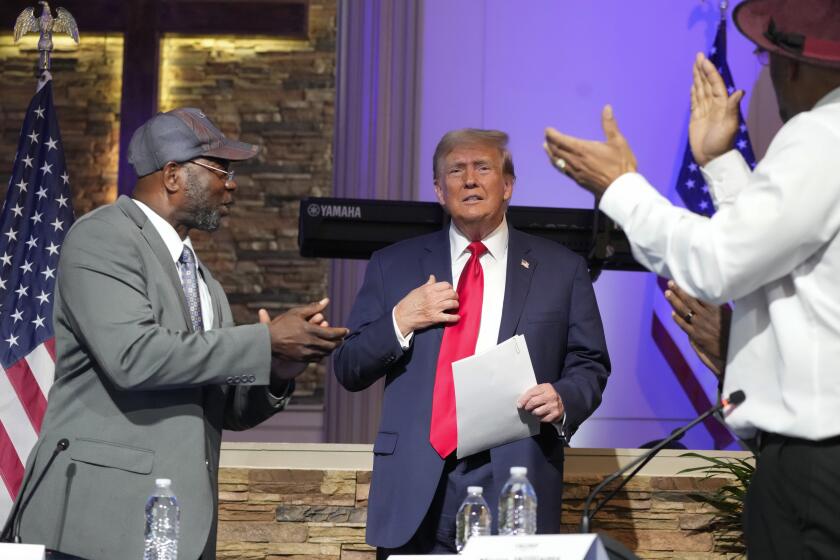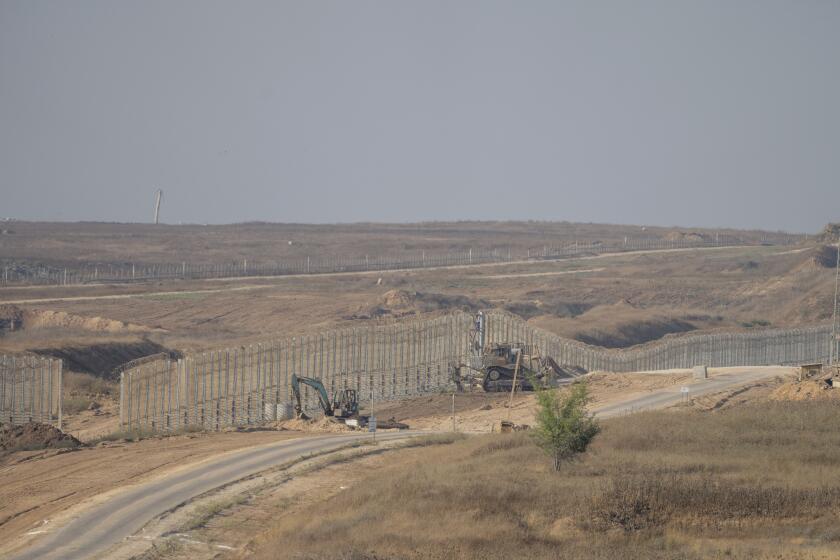Investor Flight in South Korea Worsens Amid IMF Concerns
Investors fled South Korean markets in growing numbers early today amid fear that the $57-billion bailout by the International Monetary Fund won’t be enough to prevent widespread defaults on loans by banks and industrial firms.
After the country’s currency, the won, plunged by its daily limit of 10% on Wednesday to a record low, currency trading was suspended for the day as the government scrambled to announce another emergency economic plan, in what looked like a still-desperate attempt to head off a financial collapse worse than what has already occurred.
But the government’s steps--including the suspension of operations at five more banks unable to pay their loans--appeared to have little calming effect as angry and tearful depositors gathered outside some of the banks while riot police stood by. No clashes were reported.
The investor flight continued early today. The won almost immediately fell another 10% while Seoul stocks tumbled 5%, even as the government raised the limit on foreign investment in the markets in a seemingly futile bid to win back investors.
“Korea is still scrambling for dollars to make the payments they have to make,” said Adrian Cawell, branch manager for Dresdner Kleinwort Benson in Seoul. “The level of foreign currency reserves is proving to be lower than people previously hoped.”
The virtual free fall of the won, which has now lost about half its value this year, reverberated throughout Asia. The Malaysian ringgit hit a new low today, the Indonesian rupiah fell 1.8%, and the Thai baht fell as much as 1.9% to a post-Vietnam War low.
When South Korea turned last month to the IMF for a bailout, it was estimated that the country’s banks and industrial firms had about $20 billion of short-term debt due during December, and another $50 billion due next year. The country’s total foreign debt is estimated at about $110 billion.
The current panicky mood in Seoul financial markets is based largely on concerns that even with the IMF package, there may not be a quick enough flow of funds to head off defaults by firms with debt payments due in the next few weeks.
Meanwhile, Moody’s Investors Service on Wednesday cut the credit rating on South Korea’s foreign-currency bonds to “Baa2,” just two notches above junk status.
The downgrading was triggered by “new information which indicates the country’s foreign-currency financing needs may be greater than originally disclosed and that its international reserves are lower than previously believed,” Moody’s said.
The relentless flood of grim economic news sent lame-duck President Kim Young Sam in front of the television cameras again today, where he told a nationwide audience that he feels “bitterly responsible” and said, “I am whipping myself every day thinking of the despair of entrepreneurs who have defaulted on loans and fathers who have lost their jobs.”
The actions against the five merchant banks brought to 14 the total number of these short-term financing specialty banks that have been suspended as part of the government’s efforts to clean up the country’s financial sector. Overreliance on short-term financing to fund long-term corporate expansion is blamed as one of the basic causes of South Korea’s financial crisis.
The banks suspended Wednesday were Daehan Investment Banking Corp., Nara Merchant Bank, Hanhwa Merchant Bank, Chungang Merchant Bank and Shinhan Investment Bank.
The government also said Wednesday that it would inject more financial liquidity into the markets, and the date for raising the limit on foreign investment in stocks to 50% from 26% was moved forward to today.
The Bank of Korea will supply more funds to “help stabilize the overall liquidity situation,” Finance Minister Lim Chang Yuel said.
Lim said several billion dollars’ worth of government-held bonds will be converted to cash and deposited with securities companies and banks, enabling them to invest in the stock market.
Lim said the Bank of Korea will provide $1 billion in special low-interest loans to help some of the 16 merchant banks that are still operating. The suspended banks face deadlines of a few weeks to a few months to present viable restructuring plans or face permanent closure.
The government package helped reverse a slide in the benchmark Kospi stock index, which ended Wednesday up 3.1% to close at 399.85. But that was more than wiped out shortly after the markets opened today.
The government on Wednesday also lifted a ban on foreign investment in all guaranteed corporate bonds and unguaranteed bonds issued by big business groups. But the bond market remained virtually frozen on Wednesday, with a lack of buying orders. The benchmark corporate bond yield was up 0.55 percentage point at 25.50%.
More to Read
Start your day right
Sign up for Essential California for news, features and recommendations from the L.A. Times and beyond in your inbox six days a week.
You may occasionally receive promotional content from the Los Angeles Times.

